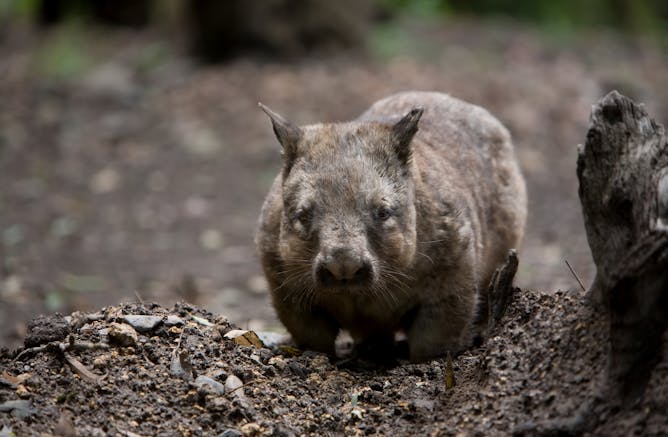|
|
|
Editor's note
|
|
When was the last time you read a long and complicated novel? Something like, say, War and Peace, or Ulysses? Did even the mention of these make you a little bit anxious? You’re not alone. We’re reading for pleasure a lot less than we used to and when we do, we prefer to skim rather than immerse ourselves in a contemplative literary experience.
And it’s a sadder state of affairs for the current and upcoming generations of digital natives. Research suggests that in 1980, 60% of 18-year-old school students read a book, newspaper or magazine every day that wasn’t assigned for school. By 2016, it was only 16%.
As literary studies lecturer Judith Seaboyer explains, deep reading requires certain brain pathways, and like with anything, we need to keep doing it to maintain the networks required. The less we read, and the more we skim, the slacker these brain circuits get. But there are some ways to to dust off our deep-reading neural pathways and get the joy of the longform back. Tip one: switch off your phone!
|
Sasha Petrova
Section Editor: Education
|

|
|
Top story
|

Fewer people are reading novels for pleasure than in the past.
from shutterstock.com
Judith Seaboyer, The University of Queensland
We have transitioned from a literate culture to one that values speed, immediacy and the decoding of small grabs of words in search for information. But old and new ways of reading can co-exist.
|

Smoke from recent bushfires has shrouded major Australian cities.
AAP/Erik Anderson
Gabriel da Silva, University of Melbourne
Bushfire smoke accumulating over Australian cities contains a complex chemical mix which does all sorts of things to the human body.
|

Wombats may not usher other animals into their burrows, but their warrens still protect other species in bushfires.
Liv Falvey/Shutterstock
Dale Nimmo, Charles Sturt University
Wombats don't herd animals to shelter in their fire-proof burrows, they just tolerate uninvited house guests.
|

Images in support and thanks of firefighters were projected onto the sails of the Sydney Opera House on January 11.
Paul Braven/AAP
Jo Caust, University of Melbourne
Artists and entertainers have raised millions of dollars for the current bushfire crisis – so why are they still at the receiving end of so much criticism and so little funding and support?
|
Health + Medicine
|
-
Fiona Charlson, The University of Queensland; James Graham Scott, QIMR Berghofer Medical Research Institute
The risk of mental health problems associated with this bushfire season extends well beyond those living in directly affected regions.
-
Cameron Webb, University of Sydney
Temperatures are soaring and bushfires are decimating Australia's wildlife. So how can we avoid creating a breeding ground for mosquitoes when putting water out for thirsty birds and animals?
|
|
Politics + Society
|
-
George Newhouse, Macquarie University
In a landmark case in the Netherlands, the courts have ordered the government to cut carbon emissions. A similar strategy would be difficult in Australia, but other legal options could bring change.
|
|
Science + Technology
|
-
Michael J. I. Brown, Monash University
Wages, starlight and polls can all be interpreted using statistics. While probabilities, medians and noise can be challenging, a simple dice can provide insights into statistics.
-
Shiva Pedram, University of Wollongong
Participants of both virtual reality-based and Skype-based therapy sessions voted greatly in favour of using VR, reporting high levels of engagement and realism.
|
|
Business + Economy
|
-
Duygu Yengin, University of Adelaide; Tracey Dodd, University of Adelaide
“Fake news”, the chief executive of Lufthansa has called it. But his counterpart at Air France calls it the airline industry’s “biggest challenge”. So does the president of Emirates: “It’s got to be dealt…
|
|
Arts + Culture
|
-
Karen Cummings, University of Wollongong
I saw the performance the first day the smoke was clearing. We need connection to find a way forward; I found it in the theatre.
|
|
|
|
| |
Featured jobs
|
|
|
| |
| |
| |

|
| |
| |
| |
Featured events
|

|
555 Lonsdale Street, Melbourne, Victoria, 3000, Australia — Monash University
|

|
555 Lonsdale Street, Melbourne, Victoria, 3000, Australia — Monash University
|

|
RMIT University City Campus, Melbourne, Victoria, 3000, Australia — RMIT University
|

|
The Great Hall, The Quadrangle, University of Sydney Camperdown, NSW 2006, Sydney, New South Wales, 2006, Australia — University of Sydney
|
|
|
|
| |
| |
| |
| |
| |
|
|
|
|
|
|
|